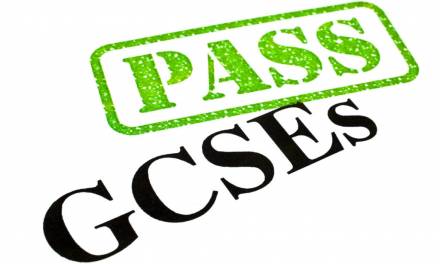Pay attention at the back – the papers are marked, the grades are in. The long-awaited year of the GCSE shakeup can now be dissected and analysed.
The question is – what did we learn from the new GCSE results?
The new GCSE
By making GCSEs more demanding, more fulfilling, and more stretching we can give our young people the broad, deep and balanced education which will equip them to win in the global race.
At the time that the new GCSE plan was announced it was safe to say that the shakeup was met with praise and criticism in equal measure.
The examinations regulatory board Ofqual has been monitoring the development and implementation of the new GCSEs meticulously, and they remain confident in the changes…
These data show the perceptions of those closest to the education system. There are many positives in this release, most importantly that GCSEs and A-levels continue to be trusted by the vast majority of those who rely on these qualifications.
We are launching the first in a series of digital ‘postcards’ to explain more about our work, focussing initially on the new 9 to 1 GCSE grading system
Critics have been vocal
Yet it seems out on the ground some teachers aren’t in agreement. Take just a few of Chris Curtis’ criticisms, writing for tes…
For the new GCSEs, we had to change direction over two years rather than the usual five. Our Year 10 students were given months and not years to prepare.
Then there is the lovely grading system. We are not just changing the content, the style, the format of the exams, but we are going to change the terminology used for grading it.
Consistency has gone out of the window, too. Nobody knows what a 6 looks like in English and maths.
And criticism existed mere weeks before the GCSE results were announced, namely honing in on the lack of understanding that parents and pupils alike seemingly had about the new grading system.
With just weeks to go before GCSE results are announced, parents, business and pupils remain unclear on what these new GCSE grades mean in practice.
Results day… Just what did we learn?
Results day threw up some fascinating facts and stats. For a start, the GCSE results gap between poorer pupils and their contemporaries widened.
Also of interest is the fact that the gap between girls and boys has grown, with girls now 9.5% points ahead, as compared to last summer’s 8.9%. This has resulted in 71% of female students being awarded at least a C (grade 4), as compared to 61.5% of males. That said, boys have increased their lead in maths.
Others say that the new GCSEs, whilst equipping students better for university study, will deter some students from pursuing certain subjects, such as English Literature.
Perhaps the real proof of the educational pudding will lie in the years to come, when tweaks, changes and steps are taken to adopt the new GCSEs for all subjects.
For now, it is probably too early to know whether and to what degree they improve academic performance and life chances for those students who already lack the upper hand of reasonable income and living standards. Most certainly the age old issues of gender and class remain, for the time being.









